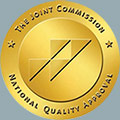Substance use disorder (SUD), also known as addiction, is listed in the Diagnostic and Statistical Manual of Mental Disorders, Fifth Edition (DSM-5) as a complex, chronic, relapsing brain disorder.
The Mayo Clinic explains addiction as a disease “that affects a person’s brain and behavior and leads to an inability to control the use of a legal or illegal drug or medication” without regard for consequence. Relapse is defined by the American Society of Addiction Medicine (ASAM), “as the recurrence of behavioral or other substantive indicators of active disease after a period of remission.” According to the National Institute on Drug Abuse (NIDA), 40% to 60% of people relapse after drug treatment. Clinical treatment studies estimate that more than two thirds of individuals relapse within weeks to months of initiating treatment.
The general treatment process for substance abuse and/ or addiction is often comprised of the following three stages in sequential order: detox, a substance abuse and/ or addiction treatment program, and aftercare. There is no universal treatment method that proves successful for every person struggling with substance abuse and/ or addiction. The path of recovery from substance abuse and/ or addiction is entirely personal, and it will be directly informed by one’s personality, mental health, and emotional needs. There is a myriad of different pharmacological and therapeutic approaches when it comes to treating substance use disorder.
Addiction often requires a customized treatment plan that considers and addresses the symptoms, the underlying causes of the disease, in addition to working with the individual to repair the damage that occurred in the various areas of his or her life as a direct result of his or her substance abuse. To develop a tailored and nuanced treatment plan, all treatment options will be considered, incorporating medication when needed as well as the best possible therapeutic modalities that are expressly geared to everyone’s personal needs. Although attending substance abuse and/ or addiction treatment will provide an individual with the highest chances for long-term success, the efficacy of drug rehab is variable, and recovery is not an inevitability. However, the National Institute on Drug Abuse, produced findings that indicate that the longer an individual spends in substance abuse and/ or addiction treatment can directly increase his or her outcome in recovery.
For Information and Support
Contemplating detox can be a very challenging time. Before any individual can begin to work on the underlying issues contributing to their substance abuse problem, they must be separated from the substances in their systems. If you are concerned for yourself or a loved one regarding substance abuse, and/ or addiction we recommend reaching out for help as soon as possible. The earlier you seek support, the sooner you and your loved ones can return to leading happy, healthy, and fulfilling lives. Sherwood Detox offers a stand-alone detox program. For additional information on detox, please do not hesitate to contact us at: 818-626-9959 or feel free to email us anytime. One of our trusted counselors is available to talk and discuss how we can best support you on your journey.









